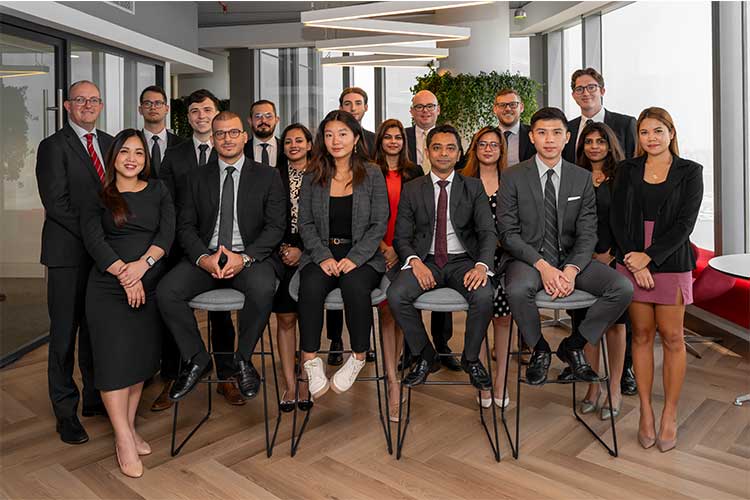

Expert valuers Paulina Tenderowicz and Edward Pugh join the firm to accelerate commercial property valuations in the Middle East
September 15, 2023 | Staff Reporter | UAE | Real Estate

Leading global real estate consultancy, Knight Frank Middle East, has announced the addition of two accomplished industry professionals to its valuation and advisory department. Paulina Tenderowicz and Edward Pugh are joining the firm's growing team, bringing with them a wealth of experience and specialised market expertise that will augment Knight Frank’s extensive real estate valuation and advisory services in the Middle East.
Paulina Tenderowicz, who is in the capacity of a Senior Manager, is an RICS and RERA Registered Valuer, and holds a license from the Abu Dhabi Department of Municipalities and Transport as a valuer. With an impressive 10 years of global real estate experience, including three and a half years in the Middle East, Paulina’s expertise encompasses valuation of a wide array of commercial properties such as retail, office, industrial assets, complex residential projects, as well as land and development projects. Her proven track record in conducting assignments in the UAE and Saudi Arabia is expected to strengthen Knight Frank’s presence in the region.
Edward Pugh returns to Knight Frank Middle East from Knight Frank London as an RICS Registered Valuer bringing four years of commercial valuation experience across the UK and the UAE. He specialises in industrial, office, retail, residential, and land valuations within the Emirate of Abu Dhabi. Edward's return to the Middle East represents a strategic advancement for Knight Frank, as his in-depth expertise and experience will be instrumental in expanding the firm’s footprint and enhancing client services in Abu Dhabi.
Commenting on the new appointments, Tim Holmes, Partner – Valuation & Advisory, MENA, says, “We are thrilled to welcome Paulina and Ed as we expand our valuation team in the UAE. Their diverse backgrounds and demonstrated excellence in the valuation sector align seamlessly with our commitment to delivering world-class advisory services. This expansion underscores Knight Frank’s unwavering dedication to harnessing top talent for the benefit of our clients.”
In addition to these developments, it is essential to recognise a significant current challenge: the introduction of Corporate Tax in the UAE. Historically, the UAE's tax-free status has been a magnet for businesses and investors, fostering remarkable industrial growth. However, the recent implementation of a corporate tax framework, including the Economic Substance Regulations and the introduction of VAT, has reshaped the business landscape.
While the UAE still maintains its appeal due to comparatively low tax rates in the global context, businesses now face the task of navigating a more intricate tax regime. This transformation could potentially influence decisions related to business location, investment strategies, and overall competitiveness. Nonetheless, it is important to underscore that these developments do not diminish the UAE’s world-class logistics, transport, connectivity, and port facilities. These assets have been instrumental in establishing the UAE as one of the world’s key logistics hubs and will continue to be an essential advantage for businesses operating in the region.
Speaking about Corporate Tax, Stephen Flanagan, Partner, Head of Valuation & Advisory, UAE, says, “UAE emphasises the significance of the real estate sector in the country. Initially, the corporate tax law left many aspects of real estate businesses unaddressed. However, a recent cabinet decision has clarified taxation on revenue derived from real estate for both corporations and individuals.”
He further adds, “The new tax framework now includes the real estate sector within its scope, subjecting it to corporate tax. The key distinction lies in the location of the business: those operating in the UAE mainland are subject to taxation, while those exclusively in free zones are exempt. Corporations are liable for taxation on any income generated from real estate activities, whereas individuals without trade licenses are exempt from real estate income tax. It's important to note that this new tax regime may impact available capital for industrial investments, potentially affecting long-term industrial space demand. Nevertheless, the current industrial sector remains vibrant, with robust rental growth in Dubai.”